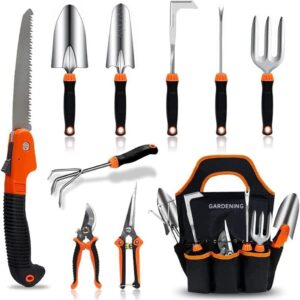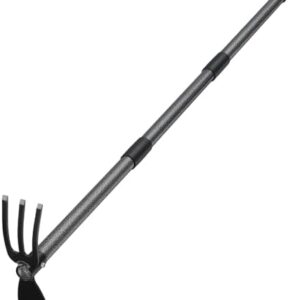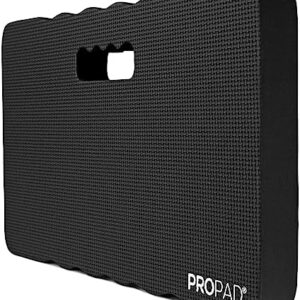Are you interested in taking a more sustainable approach to gardening and agriculture? Composting is a great way to reduce waste, improve soil health, and even save money on fertilizers. It’s a simple and natural process that anyone can do, regardless of their level of gardening experience. In this beginner’s guide to composting, we’ll cover the basics of what composting is, why it’s important, what materials you can compost, and how to get started.
What is Composting?
Composting is the process of breaking down organic materials, such as food scraps and yard waste, into a nutrient-rich soil amendment called compost. Compost is often referred to as “black gold” because of its ability to improve soil structure, increase soil fertility, and promote healthy plant growth. It’s a natural way to recycle organic matter and reduce waste that would otherwise end up in landfills.
Why is Composting Important?
Composting has a multitude of benefits for both the environment and your garden. By composting, you can divert valuable organic materials from the waste stream and reduce the production of methane gas, a greenhouse gas that contributes to climate change. Compost also helps to improve soil health by adding essential nutrients, increasing soil moisture retention, and promoting beneficial microorganisms. This, in turn, can lead to healthier plants, higher yields, and reduced reliance on chemical fertilizers.
What Can You Compost?
When it comes to composting, the key is to create a balanced mixture of “greens” and “browns.” Greens are nitrogen-rich materials, such as fruit and vegetable scraps, green leaves, and coffee grounds. Browns are carbon-rich materials, such as dried leaves, straw, wood chips, and paper. By combining these two types of materials in your compost pile, you’ll create an ideal environment for decomposition.
Here are some common materials that you can compost:
Greens:
– Fruit and vegetable scraps
– Coffee grounds and filters
– Grass clippings
– Tea bags
– Seaweed
Browns:
– Dried leaves
– Straw
– Newspaper
– Cardboard
– Sawdust
In general, it’s best to avoid composting meat, dairy products, oils, and pet waste, as these materials can attract pests and lead to unpleasant odors.
How to Get Started with Composting
Now that you understand the basics of composting and what materials you can compost, let’s talk about how to get started. Here are some simple steps to help you begin your composting journey:
Step 1: Choose a Compost Bin or Pile
You can compost in a variety of containers, such as a traditional compost bin, a homemade compost pile, or a compost tumbler. Choose a location that is convenient and receives adequate sunlight and airflow.
Step 2: Layer Greens and Browns
Start by adding a layer of browns to your compost bin or pile, followed by a layer of greens. Continue alternating layers of browns and greens, making sure to mix and moisten the materials as you go.
Step 3: Turn and Monitor Your Compost
Regularly turn your compost pile with a pitchfork or compost aerator to aerate the materials and encourage decomposition. Keep the compost moist, but not waterlogged, and monitor the temperature of the pile, as composting is a microbial process that generates heat.
Step 4: Harvest Your Compost
After several weeks to several months, depending on the size of your compost pile and the materials used, your compost will be ready to use in the garden. It should have a dark, crumbly texture and a earthy smell. You can use it as a soil amendment, mulch, or top dressing for your plants.
Tips for Successful Composting
– Chop or shred large materials to speed up decomposition.
– Keep a balance of greens and browns to avoid odors and improve the quality of your compost.
– Add a handful of finished compost or soil to your pile to introduce beneficial microorganisms.
– Avoid adding meat, dairy, and fats to your compost pile, as they can attract pests and slow down decomposition.
In conclusion, composting is a simple and rewarding practice that can benefit both the environment and your garden. By diverting organic materials from the waste stream and turning them into nutrient-rich compost, you can improve soil health, reduce waste, and grow healthier plants. So why not give composting a try and see the difference it can make in your garden and in the world around you?






